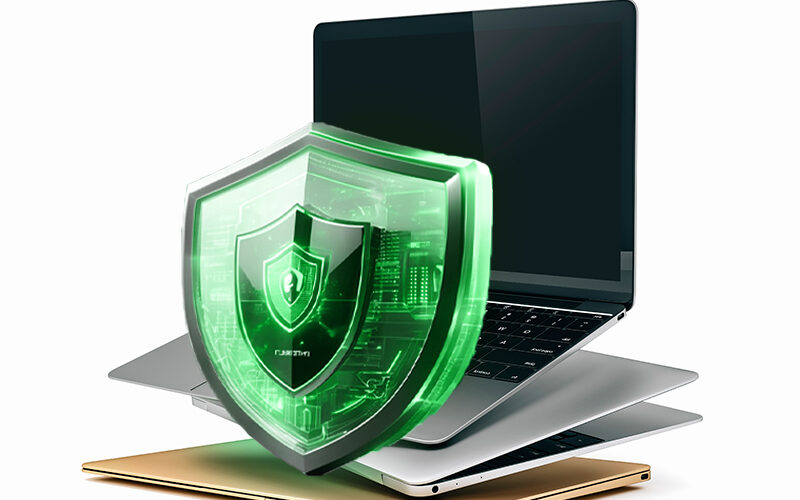Cybercriminals are always on the lookout for ways to gain access, and they may potentially use any computer, smartphone, or tablet.
Think of any device connected to your business’s network, whether it be a computer, smartphone, or laptop, as an “endpoint” or gateway. At each of these entrance points, visualize endpoint security as the vigilant guard stationed to repel potential attackers.
All your company’s digital entry points are safeguarded by endpoint security. It ensures that your digital stronghold remains intact by anticipating and thwarting even the most subtle of attacks.
Why does endpoint security matter?
Protection Against Cyber Threats:
From cunning malware to highly skilled ransomware, endpoint security serves as a barrier against a multitude of cyber threats. It is your first line of protection; always be vigilant against malevolent cyberattacks.
Safeguarding sensitive data:
A vast amount of private data is probably stored at your company. By preventing fraudsters from accessing or using this priceless data, endpoint security guarantees that it stays private.
Preventing unauthorized access:
Consider endpoint security as a kind of digital bouncer that makes sure that only people with permission can enter the network of your company. The device verifies the credentials of those attempting to connect, preventing illegal ones from entering via the gate.
Mitigating device vulnerabilities:
Devices, whether laptops, smartphones, or servers, can have vulnerabilities that cybercriminals might exploit. Endpoint security patches up these vulnerabilities, strengthening the digital armor that protects your organization.
How does end-point security work?
Endpoint security is a multifaceted approach that employs various tools and technologies to protect your organization’s digital gateways from cyber threats. Let’s delve deeper into the key components:
Antivirus and antimalware:
As your personal detectives, antivirus and antimalware programs continuously check your devices for any indications of malware or other unwanted software.
To find and quarantine questionable files before they have a chance to cause damage to your devices, these applications make use of advanced algorithms and databases of known malware signatures.
- Detection Methods: Antivirus software employs several detection methods, including signature-based detection, heuristic analysis, and behavioral analysis, to identify and neutralize malware threats.
- Real-Time Protection: Many modern antivirus programs offer real-time protection, actively monitoring your device’s activity and intercepting threats in real time to prevent infection.
- Remediation: If malware does manage to infiltrate your device, antivirus software will take prompt action to remove the threat and repair any damage caused.
Firewalls:
Firewalls act as a digital barrier between your organization’s internal network and the outside world, monitoring and controlling incoming and outgoing network traffic to prevent unauthorized access and ensure a secure digital perimeter.
- Packet Filtering: Firewalls inspect each packet of data as it passes through the network, analyzing various attributes such as source and destination IP addresses, port numbers, and protocols to determine whether to allow or block the traffic.
- Application Layer Inspection: Modern firewalls can also perform deep packet inspection at the application layer, allowing them to identify and block suspicious or unauthorized application traffic.
- Intrusion Detection and Prevention: Some advanced firewalls incorporate intrusion detection and prevention capabilities, automatically blocking traffic that exhibits signs of malicious activity or known attack patterns.
Encryption:
Encryption plays a crucial role in endpoint security by protecting sensitive data from unauthorized access or interception.
It involves transforming plaintext data into ciphertext using cryptographic algorithms, rendering it unreadable to anyone without the corresponding decryption key.
- Data Encryption: Endpoint security solutions often employ full-disk encryption or file-level encryption to protect sensitive data stored on devices such as laptops, smartphones, and servers.
- Transport Encryption: In addition to encrypting data at rest, endpoint security solutions also ensure that data transmitted over networks is encrypted to prevent eavesdropping or interception by unauthorized parties.
- Key Management: Proper key management is essential for effective encryption, ensuring that encryption keys are securely generated, stored, and distributed to authorized users while preventing unauthorized access.
Security Updates and Patches:
Regular updates and patches are crucial for maintaining the security of your devices and closing potential security gaps that cybercriminals might exploit.
These updates typically include fixes for known vulnerabilities and security weaknesses identified by software vendors or security researchers.
- Vulnerability Management: Endpoint security solutions often include vulnerability management features that scan devices for missing patches or outdated software versions and provide recommendations for remediation.
- Patch Deployment: Automated patch deployment tools streamline the process of applying security updates across your organization’s devices, ensuring timely protection against emerging threats.
- Continuous Monitoring: Even after applying patches, endpoint security solutions continuously monitor devices for signs of compromise or exploitation, providing real-time alerts and insights into potential security incidents.
By leveraging these tools and technologies, endpoint security solutions help organizations defend against a wide range of cyber threats and safeguard their digital assets from malicious actors.
From proactive threat detection to robust data protection measures, endpoint security plays a crucial role in maintaining a secure and resilient cybersecurity posture.
The cutting-edge features and technology in our endpoint solutions are developed to give your company’s digital assets unmatched protection.
We are here to help you navigate every stage of your cybersecurity journey, whether you’re new to endpoint security or looking to improve your current solution.
In order to discuss how our endpoint solutions can address your specific cybersecurity needs, we warmly invite you to contact us.
In collaboration with Xown Solutions Limited, your company’s cybersecurity posture can be significantly improved, effectively fending off online attacks.


